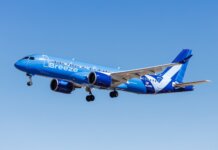Montgomery-based Knox Kershaw Inc. (KKI), a respected manufacturer of railroad track maintenance equipment, has a long history of innovation and deep roots in the railroad industry beginning in the Roaring 20s.
KKI President and CEO Knox Kershaw continues to draw inspiration from his late father, Royce Kershaw Sr., an entrepreneur and inventor who had more than 100 patents to his credit. “My father did many things over the course of his life and owned a number of businesses. He would see a need and find a way to meet it, ” Kershaw says. “Today at Knox Kershaw Inc., we continue to look for ways to improve our product line and our processes. You have to keep innovating and changing with changing circumstances in business or you get left behind.”
Knox Kershaw’s father kicked off the predecessor company, Royce Kershaw Co., which specialized in railroad track construction, in 1924. From that time to 1956, the company worked on 4, 000 miles of track across the country. “My father didn’t begin his career with the goal of producing so many patents over the course of his lifetime. His innovations just came out of his responding to problems he encountered and decided to solve, ” Kershaw says.
During the Second World War, Kershaw’s father reacted to the growing labor shortage by inventing the ballast regulator, which shapes and distributes gravel supporting the ties in rail track, and the cribbing machine, which removes ties. His inventions greatly reduced the number of workers needed for railway track construction and maintenance.

|
“Those machines had a tremendous impact on the railroad industry, ” Kershaw says.
In association with his newly invented machines, Kershaw’s father founded Kershaw Manufacturing. The company focused on the design and development of a growing variety of railway track machinery. The products took off in the marketplace, bringing the Kershaw family great prosperity.
“It was truly a rags to riches story. Because of a changing economy, my dad had been busted flat at the age of 50, ” Kershaw says. “But he kept working at finding solutions to railroad problems and became successful again.”
After his father’s death, Kershaw worked with his brother, Royce Jr., to run Kershaw Manufacturing. Over the years, Knox Kershaw served as vice president general manager-axle division, executive vice president and president. Then in 1983, he sold his shares to his brother, bought out the smaller original company, and changed its name to Knox Kershaw Inc. KKI initially focused on contracting railway services with its initial 40 employees.
The brothers parting ways was part of Knox Kershaw’s emergence as a business leader. He had earned a bachelor’s degree in management from the University of Alabama and also completed the advanced management program at Harvard Business School. Based on those experiences and his own inspiration, he developed his own philosophies about managing a business. “My brother and I didn’t agree on how to run Kershaw Manufacturing, and I needed a change, ” Kershaw says. “It was time to do my own thing.”
KKI eventually expanded beyond contracting and began manufacturing railway track maintenance equipment. After the company introduced its innovative KBR 900 Ballast Regulator in 1993, KKI gained a higher profile as an outstanding railroad equipment manufacturer.
When KKI’s contract maintenance business was decimated by railroad mergers in the late 1990s, Kershaw sold the company’s track maintenance assets to a British company, in March 2002. Rather than closing KKI, which was one option on the table, Kershaw decided to expand the company’s manufacturing abilities.

|
“It was touch and go there for a while, and I wasn’t entirely sure we were going to make it, ” Kershaw says.
Fortunately KKI’s manufacturing caught on in the marketplace within a few years and increasing sales followed. Currently, KKI employs 120 workers. “We strategically developed a fuller product line and continued to make improvements, ” Kershaw says. “Now that our business is mature, our current focus is improving our processes, increasing efficiencies and reducing costs.”
In addition to ballast regulators and cribbing machines, KKI manufactures tie cranes, track brooms, material handlers and other equipment. The company also builds custom equipment to meet specific customer requirements and remanufactures equipment. Among KKI’s major customers are Norfolk Southern, CSX, Burlington Northern Santa Fe, Florida East Coast, Union Pacific, Canadian Pacific, Canadian National, Kansas City Southern and Amtrak.
For its growing success, the Business Council of Alabama recognized KKI as the Alabama Manufacturer of the Year in the medium-size category in 2008. “It felt great to get that recognition, especially considering the fact I started the manufacturing enterprise later in life, ” Kershaw says.
Although past typical retirement age, Kershaw doesn’t plan to retire anytime soon. “I like to work and want to continue working as long as I can, ” Kershaw says.
Keeping the innovations coming is part of what keeps Kershaw motivated. He applauds his whole KKI team for helping make the company a leader in its industry.
“We’re always looking to improve the way we do things, so we can keep our customers happy, ” Kershaw says.
For inspiration in his free time, Kershaw pursues his interests in hunting and collecting guns, classic cars and miniature trains. “I try not to think about work in my off time, but I do sometimes anyway, ” Kershaw says laughing.
Kershaw hopes to keep the family business thriving for years to come. In recent years, two of his children have come to work for the company in sales and marketing. “It’s great to see the company my father started continue to the next generation, ” he says.
Kathy Hagood is a freelance writer for Business Alabama. She lives in Homewood.
Text by Kathy Hagood



